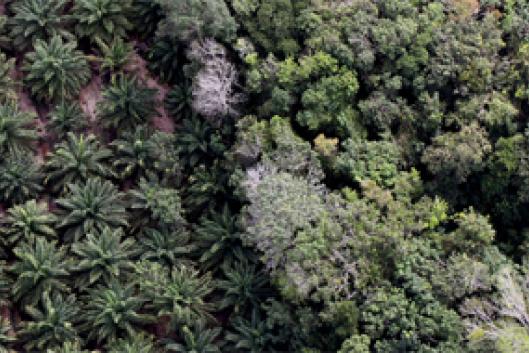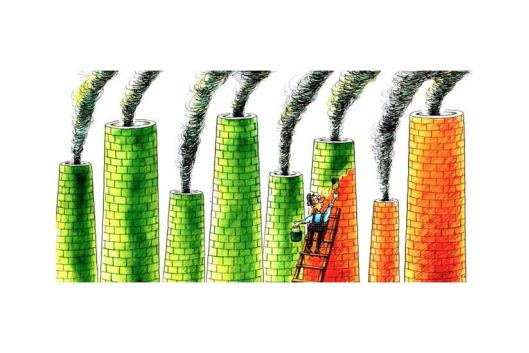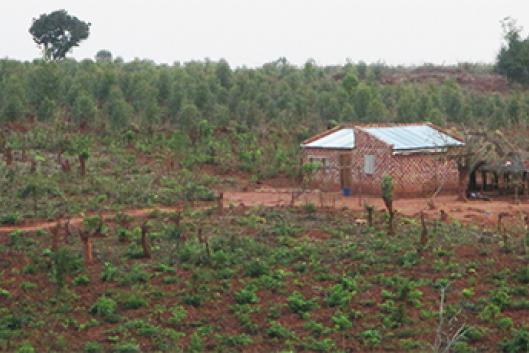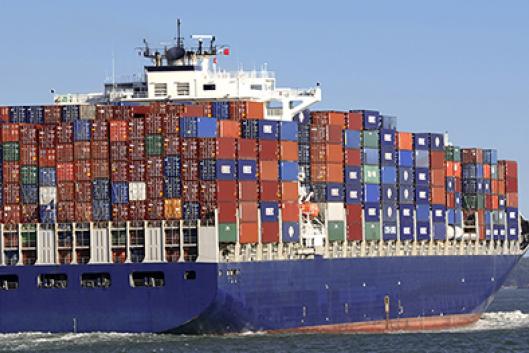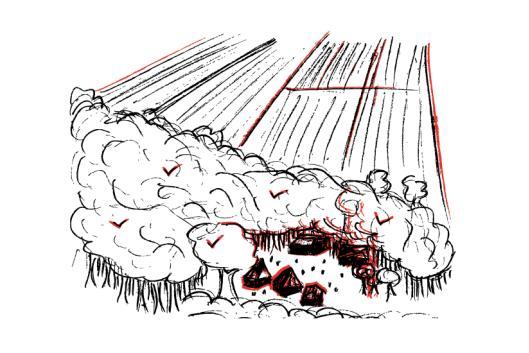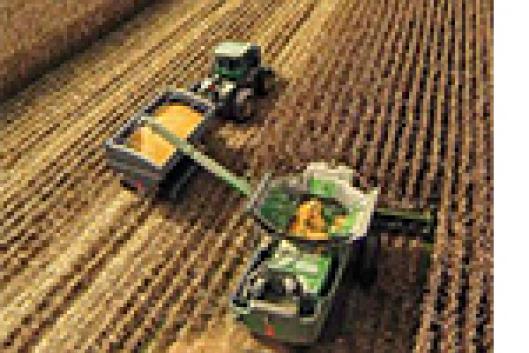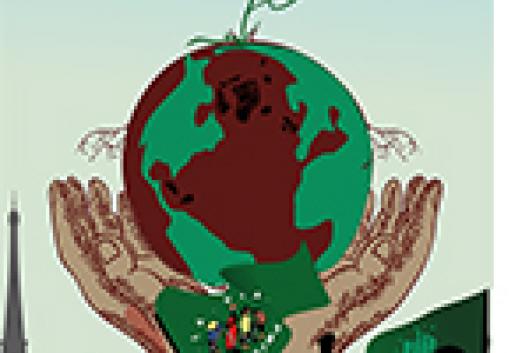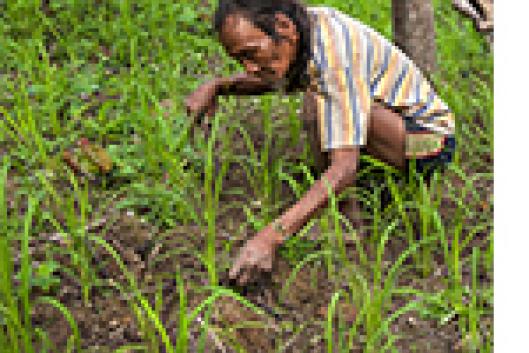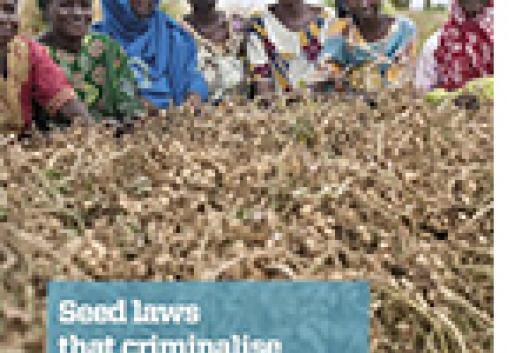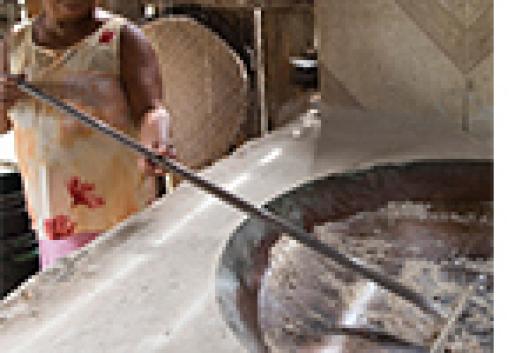This issue of the WRM Bulletin is co-produced with GRAIN. GRAIN works to support small farmers and social movements in their struggles for community-controlled and biodiversity-based food systems and against the corporate controlled industrial food system. WRM supports the struggles of forest-dependent communities in the defence of their forests and territories against industrial tree plantations, extractive industries and other threats to the life and livelihoods of such communities. While each of the two organisations have their particular history and focus, we see these struggles intimately connected and indeed we often come across each other in meetings, emails, fora and statements.
Bulletin Issue 219 – October 2015
The struggle for food sovereignty and the climate agenda
WRM Bulletin
219
October 2015
OUR VIEWPOINT
THE STRUGGLE FOR FOOD SOVEREIGNTY AND THE CLIMATE AGENDA
-
9 November 2015**This article is based on a conversation between Winnie Overbeek, the international coordinator of the World Rainforest Movement, and GRAIN on September 2014, which was published by GRAIN at “Planet palm oil”. The information has been updated for this article.
-
9 November 2015As the UN climate negotiations in December approach, there's only one major intergovernmental initiative on climate and agriculture, and it is controlled by the world's largest fertiliser companies. The Global Alliance for Climate Smart Agriculture, launched in 2014 at the UN Summit on Climate Change in New York, is the result of several years of efforts by the fertiliser lobby to block meaningful action on agriculture and climate change.
-
9 November 2015Certification has been described as the brightest of bright shining lies of the sustainability movement. And in recent years, certification roundtables have teamed up with another bright shining lie: REDD+
-
9 November 2015"Nobody eats eucalyptus." With this statement farmers expressed their outrage when the company Aracruz Celulose expanded its monoculture eucalyptus plantations several years ago on arable land in Espirito Santo, Brazil. While the objective was to produce and export more pulp, Aracruz and other companies publicly promote their practices as "smart.” They claimed they only plant trees on "degraded" or "abandoned" land, for example. And now with the climate crisis, the FAO suggests adopting "climate-smart forestry" practices. The question that arises: Can we really consider current company practices to be "smart forestry"?
-
9 November 2015The climate talks in Paris in December this year are viewed as a last chance for the world’s governments to commit to binding targets that might halt our march towards climate chaos. But in the countdown to Paris, many of these same governments have signed or are pushing a raft of ambitious trade and investment deals that would pre-empt measures needed to deal with climate change.
PEOPLES IN ACTION
-
9 November 2015The Oilwatch network has issued an international call for creating an “Annex 0” group at the UN climate negotiations. This would mean a group of peoples or nations acknowledged for their contributions to prevent further climatic changes, for example, with the commitment of leaving fossil fuels in the ground. Initiatives under “Annex 0” include, among others, the rejection of mechanisms such as carbon markets, REDD+, and other false solutions against climate change. The Shuar Nation of Pastaza, in the community of Tsurakú, Ecuador, decided in October 2015 to sign up to this call, hoping that many other peoples and nations will follow.
-
9 November 2015A new video by La Vía Campesina and GRAIN is part of a campaign to highlight the key role of the industrialized food system to the climate crisis. The video provides accessible information to understand the six main impacts of the agroindustrial food system that contribute to global warming: deforestation, industrial farming, transport, processing, refrigeration and food waste. In the Americas, Asia, Europe and Africa, for many years, people have been criticizing false solutions to climate change like GMOs, the “green” economy, and “climate-smart” agriculture. The solution to the climate crisis is in the hands of small farmers, along with consumers who choose agroecological products from local markets.
-
9 November 2015An international statement signed by over 250 organizations and movements from around the world expresses deep concerns about the growing influence and agenda of so-called “Climate-Smart Agriculture” (CSA) and the Global Alliance for Climate-Smart Agriculture (GACSA). In the face of the climate crisis, we need a radical transformation of our food systems away from an industrial model and its false solutions, and toward food sovereignty, local food systems, and comprehensive agrarian reform in order to achieve the full realization of the human right to adequate food and nutrition.
-
9 November 2015Climate disruptions cause widespread hunger, migration and the worsening of living conditions for millions of rural families, especially women and youth. The global food system imposed on people by Transnational Corporations (TNCs) is both a total failure and one of the main causes of the human-induced climate crisis – dependent on fossil fuels to produce, process and transport. Peasant agriculture and local food systems, by contrast, have proven themselves capable of sustainably feeding people for centuries.
RECOMMENDED
-
9 November 2015Traditional upland farming implemented through swidden (‘slash-and-burn’) technology (kaingin) in The Philippines is demonized and antagonized through restrictive legislation. In Palawan forests are being destroyed by agribusiness (mainly oil palm and rubber), mining enterprises and various forms of land grabbing. Yet, state agencies as well as some Palawan NGOs still view indigenous kaingin as ‘illegitimate agriculture’ and as the primary cause of deforestation.
-
9 November 2015Peasant seeds – the pillar of food production – are under attack everywhere. Under corporate pressure, laws in many countries increasingly limit what farmers can do with their seeds. Seed saving, which has been the basis of farming for thousands of years, is quickly being criminalised. A new booklet and poster from La Via Campesina and GRAIN document how big business and governments are moving to stop farmers from saving and exchanging their seeds, and shows how farmers are fighting back.
-
9 November 2015In the middle of the biggest continuous area of Brazil’s Atlantic Forest, southwest of Sao Paulo, researchers of the University of Sao Paulo and the State University of Campinas accompany the changes in the region’s quilombola communities since 2003. Recent studies of this group strengthened the idea that the planting method adopted by the quilombola communities – generally seen as aggressive due to the slash and burn of native vegetation - has low impacts over forests and animals, just like the farmers were already saying. Through sensors buried in the soil, it was confirmed that the fire used to open an area for agriculture burns mainly the leaves and thin branches.
-
9 November 2015The publication recently launched by the Mexican organization Otros Mundos Chiapas is an effort to share many elements and experiences of community forest management. Facing a vast quantity of information disseminated by governmental and non-governmental organizations that side with the mercantilization of nature policies, many forest communities and peoples must confront new processes to defend their land and territory. This informative material seeks to help those who need to go deeper into these knowledges and to contribute through advising on these processes.

